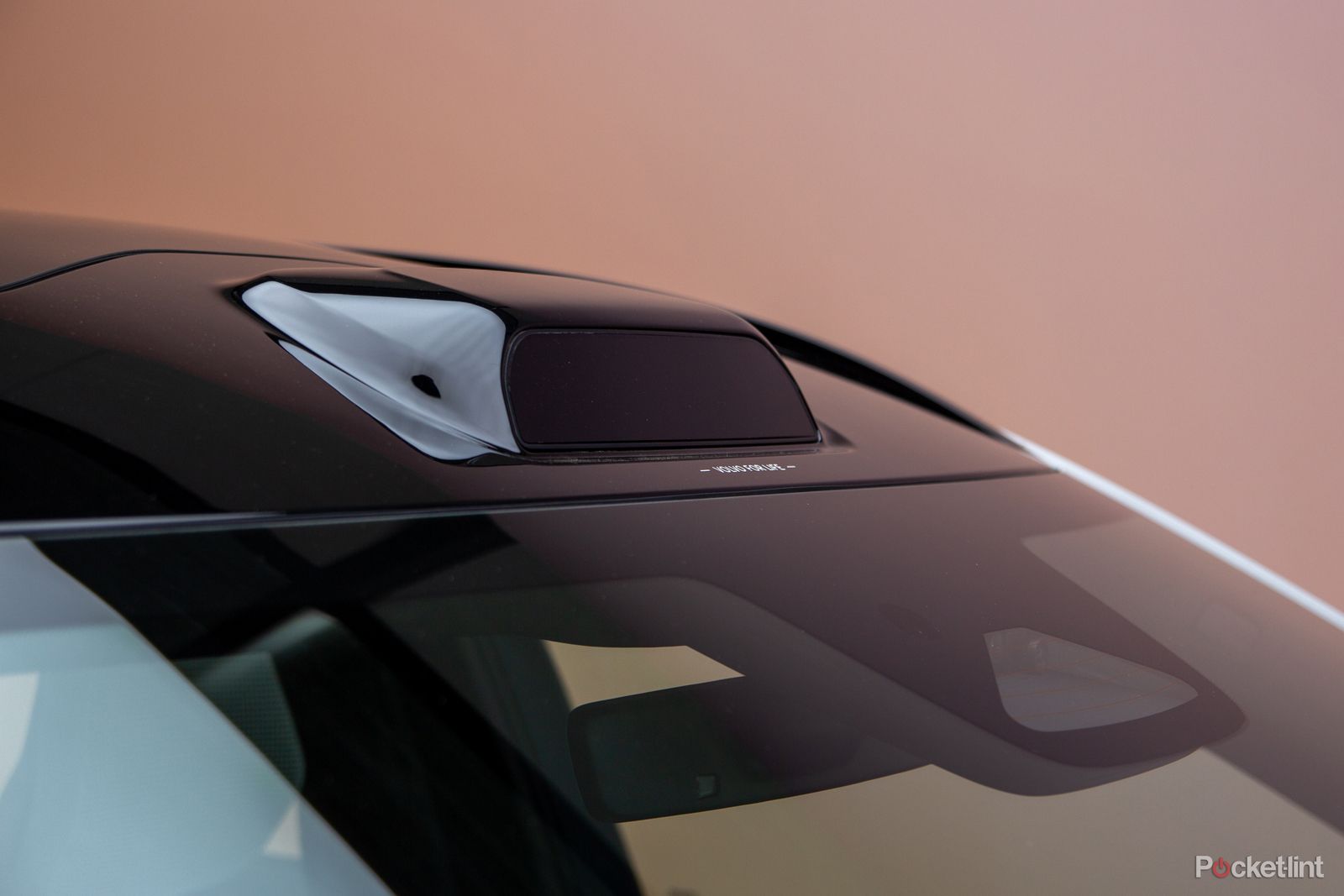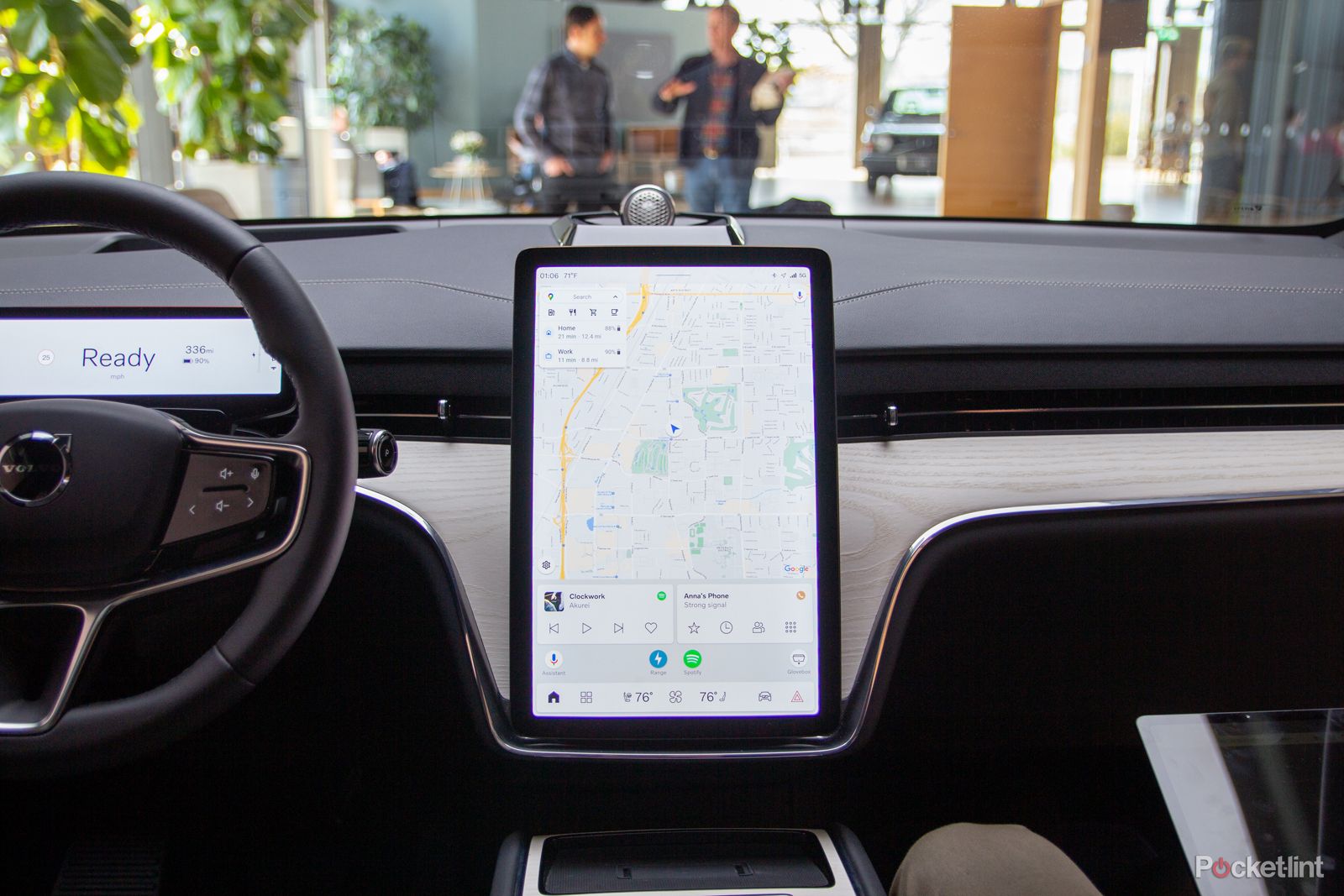Volvo has had plenty to say about the EX90, its forthcoming fully electric SUV. Announced in November 2022, this is a car that’s so loaded with tech you’d be forgiven for thinking it’s basically just a smartphone on wheels. The tech brands that Volvo has turned to certainly suggests that, with Nvidia’s Drive platform, Snapdragon Cockpit and Google completely integrated for seamless access to its apps.
We set our eyes on the new Volvo EX90 at the company’s headquarters in Gothenburg, Sweden, before deliveries start in early 2024, with a price just under £100,000 in the UK.
2024 Volvo EX90
First impressions
The Volvo EX90 carries with it some familiar Volvo design cues, evolving the XC90, while taking the company’s SUVs into the future. This is a new flagship from Volvo, setting the standard for future cars from the brand. It’s expensive, but it also has a lot to offer.
Design
Take one look at the Volvo EX90 and you’ll be forgiven for thinking it’s Volvo’s XC90. The XC90 is a huge car by European standards, dominating roads majestically, with hallmarks of Volvo design through the years. The Thor’s Hammer headlights are the most obvious signature, here not just a daytime running light, but opening up to reveal the proper headlights behind when you need them.
But looking down the flanks of this car, those pronounced shoulders are reminiscent of Volvos stretching back decades, a more streamlined take on those boxy looks that Volvo offered in the past.
There’s now an enclosed front, although there are still vaned panels to the bottom that can open and close to provide additional airflow, for example to cool the battery when charging. The rear of the car perhaps sees the biggest overall change, it’s a much cleaner design than the XC90, much less fussy, while little details, like the flush door handles keep a nice streamlined aesthetic.
Those with eagle eyes might have spotted something unusual with the wing mirrors. Volvo has retained a glass mirror (although it’s now frameless which looks great), but it’s sitting on a stem that integrates cameras. This forms part of the EX90’s 360 vision system, feeding in data to empower the driver assistance functions.
The most obvious element in the design sits at the roofline. Above the windscreen there’s a bump housing the lidar. At first glance it looks like it should say “taxi” on it, but Volvo explained to us that the positioning is to allow the lidar a better view. It also has to sit proud as the front glass can only be placed at a particular angle, or the lidar would be less effective because of reflections off the inside.
That lidar bump might divide opinion, but it’s fundamental to systems that Volvo has equipped the car with to keep you safe on the road, and ultimately, take further steps towards becoming an autonomous car. Volvo says this is one of the safest cars on the road.
A new interior
As is now common in electric cars, there’s a battery in the floor of the EX90, with a so-called skateboard design for the platform. That means a low centre of gravity, while also affording more space to the cabin – so you can have a flat floor for example.
Sustainability remains important, with recycled and sustainable materials used as widely as possible, like woollen fabrics. The first impression is one of spaciousness, with the panoramic roof (a standard feature) boosting the light in the cabin. The EX90 is a seven-seater, with power folding seats in the third row, which will quickly fold down to extend the rear stowage space. There’s a small frunk too.
We’ve not had the chance to experience the comfort of the seats for any great period of time as we’ve not had the chance to drive the car yet, but there’s a nice minimalist ambiance to the interior. That minimal theme is something that Volvo has been chasing for some time, reducing buttons and controls.
That’s felt across the interior, with the 15-inch central display handling pretty much everything and steering wheel buttons for the rest. There’s still a dial on the centre console – conveniently placed so you don’t always have the jab at the screen, along with a charging pad for your phone. Otherwise you’re looking at pretty clean lines, punctuated by a proliferation of speakers from the 25-piece Bowers & Wilkins sound system.
The interior technology
The driver display is minimalised in the EX90, with Volvo bumping some essential details to a heads-up display instead, while the central screen takes care of everything else. That’s not an uncommon position: Tesla has eliminated the driver display in many models, while the forthcoming VW ID.7 does the same – just the essentials for the driver display and the rest on the HUD.
The model we examined was a pre-production prototype, so the interior displays were not functioning as they will in the final version of this car, but we can see how they have evolved from something like the XC40 Recharge. There are climate control functions across the bottom of the display, with widgets for important apps and lots of space for mapping.
Importantly, this is an Android system, using Google services to power things. There’s Google Maps and Google Assistant to take your voice requests. Volvo has said that Unreal Engine drives on on-screen visuals, while Snapdragon Cockpit powers everything. That all sits behind the scenes, however, what’s more important is that you can connect your phone to access Android Auto or Apple CarPlay, as you can in other cars.
We don’t really know how well the tech solution hangs together in the EX90 and that’s probably going to be the last piece of the puzzle that falls into place. There’s a lot more going on – there are interior radars to detect movement, IR cameras to keep an eye on driver attentiveness, the lidar system as well as five radar, four short-range cameras, two long-range cameras, ultrasonic sensors and more, designed to give the EX90 a complete picture of things outside the vehicle, as well as inside.
Volvo EX90 battery and range
In lieu of driving the EX90, all we can do at this stage is talk about what we know – and what we know from other Volvo electric cars in the Recharge range. The Volvo EX90 is equipped with a 111kWh battery (gross) with a 107kWh nominal use. This puts it in the same sort of capacity band as something like the BMW i7 or Mercedes EQS.
The range that Volvo is citing is 600km – 370 miles – WLTP. This of course has a lot of variables as all electric ranges do, but you need to consider that this is a 2750kg vehicle, so you’re hauling around a lot of weight. But the cited ranges are 21kWh per 100km, which would equate to about 3 miles per kWh. If you’re familiar with electric cars, you’ll know this is towards the low side, but again, we’re talking about a huge car. Real world figures, of course, could be wildly different.
But this is also launching as an all-wheel drive model, with either a 300kW output or 380kW, the latter offering a 0-62mph time of under 5 seconds, which is terrifyingly fast for a car of this size. It will also offer 250kW charging, which (if you can find a charger that supports that capacity) will recharge you in no time at all.
There’s some engineering to boost efficiency on this AWD model too, with the rear motor able to be disconnected, so you’re only driving it from the front wheels. That’s pretty common on all-wheel drive systems, often using all the wheels to accelerate, and then only the front wheels to maintain speed once you’re up to pace. It will also offer clever torque vectoring, able to apply the power intelligently to maintain grip and boost performance.
Of course we’re still waiting to actually get behind the wheel and see what these numbers produce – we’re expecting a refined drive like the existing Recharge models in Volvo’s line-up
First impressions
The Volvo EX90 has set out its stall based on its high level of technology. Volvo is still trying to deliver on an ambition to ensure that no Volvo is in or causes an accident and the company is convinced that this is the safest Volvo ever. It’s also ready for the future, able to deliver higher levels of self-driving autonomy, mostly only held up by legislation.
But aside from all that, it’s also pushing a different kind of luxury for buyers. There aren’t many pure electric cars of this size – the BMW iX perhaps, the Mercedes EQS SUV – and we already know from the success of the XC90 that there’s an appetite for Volvo’s way of doing things. The interest in the Volvo EX90 has already been high – but we’re going to have to wait a little longer to learn more about it.
Trending Products

Cooler Master MasterBox Q300L Micro-ATX Tower with Magnetic Design Dust Filter, Transparent Acrylic Side Panel…

ASUS TUF Gaming GT301 ZAKU II Edition ATX mid-Tower Compact case with Tempered Glass Side Panel, Honeycomb Front Panel…

ASUS TUF Gaming GT501 Mid-Tower Computer Case for up to EATX Motherboards with USB 3.0 Front Panel Cases GT501/GRY/WITH…

be quiet! Pure Base 500DX Black, Mid Tower ATX case, ARGB, 3 pre-installed Pure Wings 2, BGW37, tempered glass window

ASUS ROG Strix Helios GX601 White Edition RGB Mid-Tower Computer Case for ATX/EATX Motherboards with tempered glass…












